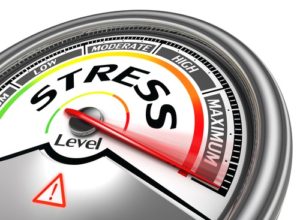 Do you seem to be under a lot of stress these days? Anxiety and stress levels are at an all-time high. Perhaps it’s time to learn how to break the stress cycle. Any news program will show you that today’s chronic stressful occurrences have had a negative impact on society as a whole.
Do you seem to be under a lot of stress these days? Anxiety and stress levels are at an all-time high. Perhaps it’s time to learn how to break the stress cycle. Any news program will show you that today’s chronic stressful occurrences have had a negative impact on society as a whole.
Individually, people of all ages are suffering and doing their best to deal with dire situations.
You may have had to deal with a stressful circumstance in the past, but your body and mind were given time to recover before being smacked again.
People are constantly exposed to stressful circumstances and content these days.
Cell phones allow them to be reached at any time. You are bombarded with stressful news twenty-seven days a week, three hundred and sixty-five days a year, with no respite.
Financial obligations have increased, but that’s not all. Every day, week after week, month after month, you’re bombarded with a slew of stressors.
So, what are your options? Unfortunately, many people try to cope by engaging in destructive addictions or even contemplating suicide.
Understanding how stress cycles function is a better method to reclaim control and start living your best life, which will lead to a healthier and happier life.
When You’re Blindsided By A Stressful Event, Here’s How To Break The Stress Cycle
To begin, we must consider the moment we are initially confronted with a stressful event or trigger. This is sometimes unavoidable, and it isn’t much you can do about it. You didn’t see it coming and had no advance warning that it was on its way.
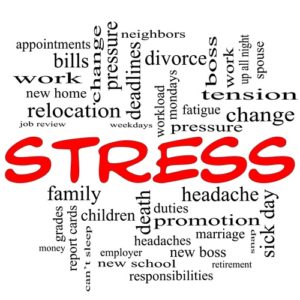 However, we are responsible for much of the stress we experience. We are surrounded by toxic individuals. Alternatively, we may continue to work in a job or vocation that we despise, whining about it and becoming enraged if something goes wrong.
However, we are responsible for much of the stress we experience. We are surrounded by toxic individuals. Alternatively, we may continue to work in a job or vocation that we despise, whining about it and becoming enraged if something goes wrong.
We keep up with the latest news or stay linked to social media platforms, causing ourselves to be constantly agitated. Perhaps we have neglected our health and now have to deal with the physical consequences.
You might be the type of person who continuously spends more than their income or budget allows, and then has to deal with the stress that this causes. All of these things are preventable and within our power.
So, first and foremost, assess your primary sources of stress. Look for the source of your stress and see if there’s anything you can do about it. Could you set limits with someone who is toxic?
Perhaps you should cut back on your expenditures or reduce your time spent viewing the news or reading social media! Make a strategy for those unavoidable situations you couldn’t prevent after you’ve worked on eliminating or decreasing stress elements within your control, which will assist break the stress cycle and safeguarding you.
For example, suppose you unexpectedly become a carer for an elderly parent – or your employer goes out of business, leaving you jobless. These aren’t circumstances that you created or might have avoided.
However, you can prepare a strategy for dealing with tension like this. It’s critical to have a mechanism in place to deal with stress when it arises in order to avoid the negative health impacts it can have on your body and mind.
When a Kneejerk Reaction Occurs, Break the Stress Cycle
Our reaction to stress is a part of the problem. The majority of people never accept responsibility for how they deal with stress. Instead, they approach it from the perspective of a victim.
They frequently grumble about their circumstances, turning it into a raw and emotional narrative of sorrow, which it is, to be sure. But it’s your attitude and how you handle the circumstance that counts.
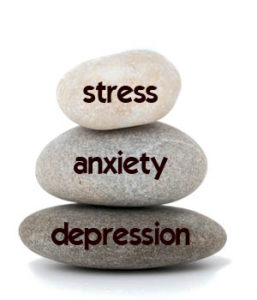 Every year, millions of people triumph against adversity, and they do so with a cheerful, can-do attitude. They acknowledge the uncomfortable situation, but instead of terror and anguish, they move forward with purpose and power.
Every year, millions of people triumph against adversity, and they do so with a cheerful, can-do attitude. They acknowledge the uncomfortable situation, but instead of terror and anguish, they move forward with purpose and power.
What’s your go-to response to a stressful situation? Do you begin to tremble or cry? Have you poured yourself a large drink or taken a cigarette outside? Do you find yourself snapping at others and then regretting it later, adding to your day’s stress?
Some people go on social media and shout about whatever hardship they’re going through so that everyone can see it in real-time. They frequently get engaged, which confirms their point of view on the transgression.
You might be the kind to grab a pint of ice cream and eat it while crying on the couch wrapped in a blanket. Everyone is affected by stress in different ways. Some people are paralyzed by it, while others go into attack mode — and let others deal with it wisely.
You have the ability to choose how you react to anything. Even though you can’t control the stressful circumstance before it occurs, you can influence how you react once it occurs. To begin, decide what you want to happen as a result of your reactions.
Once you know what you want to happen as a result of your reactions, you can build a plan to ensure that it occurs anytime stress occurs in your life. You’ll need a plan in place for your initial reactions.
For example, you might want to set out 5-10 minutes to practice deep breathing by yourself. This will immediately relax you and allow you to think more clearly.
After that, you might want to scribble some notes on paper. Make a list of the facts concerning what’s going on. On a scale of not awful to terrible and life-changing, you might rate it.
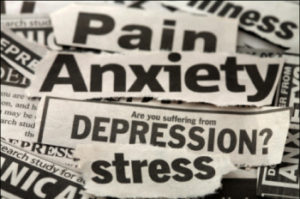 Then take some time to think about it – and what you should do about it. Consider or write down every possible response. Feel free to write about things you know are bad for you, such as eating a whole pint of ice cream.
Then take some time to think about it – and what you should do about it. Consider or write down every possible response. Feel free to write about things you know are bad for you, such as eating a whole pint of ice cream.
It’s easy to recognize what your path should be when you see the smart options next to the kneejerk terrible choices. Allow yourself to have a calm, authentic reaction only after you’ve completed these steps.
Allow The Body To Rally In Order To Reduce Internal Damage
In some circumstances, stress has a benefit, which is why your body is built to deal with it on occasion. Repetitive stress that won’t let up and give you time to heal is something it’s not designed to handle.
When you’re stressed, your body produces a burst of cortisol and adrenaline. This is fantastic if you come into a wild animal that requires alertness, quickness, or strength to survive.
It’s not so good if you’re continuously flooded with hormones because you despise your job, the traffic is terrible, and your relationship is on the rocks. When your nervous system is under constant stress, it strives to protect your body from the inside out.
Consider how you feel when you’re under a lot of pressure. Your muscles contract up, making you feel tense. Your heart is racing, and your breathing is as well. If you could check, you’d probably notice that your blood pressure has risen.
 It is not bad for you to have this experience on a regular basis. Your body is equipped to deal with it. However, if you never give it a chance to rest – if you keep it on high alert all the time – it will suffer and be unable to recover.
It is not bad for you to have this experience on a regular basis. Your body is equipped to deal with it. However, if you never give it a chance to rest – if you keep it on high alert all the time – it will suffer and be unable to recover.
If you notice your body is physically reacting to a stressful situation, you should attempt to reverse it and return to a relaxed condition as soon as possible. This can be accomplished in a variety of ways.
You can conduct progressive muscle relaxation in addition to deep breathing and meditation. This is when your muscles are purposely tight and then relaxed. When you combine this with regular deep breathing, your body will quickly calm down, giving you the clarity you need to think through and manage the situation.
Break the Stress Cycle to Protect Your Overall Health
You’ll have to deal with long-term health difficulties that come from chronic stress if you don’t put a stop to the stress reaction and just let it run wild. These might be moderate or severe, and if left unchecked, they can wreck your life.
Chronic stress isn’t only unpleasant to be around. It has serious health consequences. The first effect is that your immune system suffers. It gradually deteriorates to the point that you are susceptible to every cold and ailment that comes your way.
If you seem to be sick all the time, you should consider whether stress is to blame. Another thing that happens when someone is under a lot of stress is that their blood pressure starts to rise.
 When you’re stressed, your heart starts racing and your blood vessels constrict. You could be setting yourself up for a significant health condition like a heart attack or stroke if you’re not careful.
When you’re stressed, your heart starts racing and your blood vessels constrict. You could be setting yourself up for a significant health condition like a heart attack or stroke if you’re not careful.
Due to the amount of stress they experience on a regular basis, some people suffer stomach ulcers or acid reflux. This makes life difficult and miserable, and by paying attention to the source of your stress, you may be able to alleviate it.
Those who allow themselves to be engulfed in stress all of the time begin to develop digestive disorders. You might be experiencing stomach pains or difficulty going to the restroom.
When people are under a lot of stress, their hair starts to fall out. This happens to both men and women. This isn’t a situation where you’re tearing your hair out, though it is a common reaction to stress.
This is when you take a shower and watch clumps of hair fall out into the drain, all because your body is constantly bombarded with cortisol and is unable to rest, relax, or repair itself in order to sustain you.
Diabetes is one health issue that has a similar deadly cycle to stress. Diabetics are frequently stressed as a result of their condition. Despite this, stress exacerbates diabetes. If your blood sugar levels aren’t in the usual range, you may need to change your lifestyle to reduce stress.
It’s not always anything life-threatening in terms of health problems, but it might be something that degrades your quality of life. Daily headaches are common, and they can progress to more acute migraines.
You must examine all of your health difficulties and determine whether they are a result of a coincidence or are being exacerbated by the sheer amount of stress you are experiencing, and then make changes in your life to safeguard your health.
As a result of learning to break the stress cycle, you will live a better and happier life.
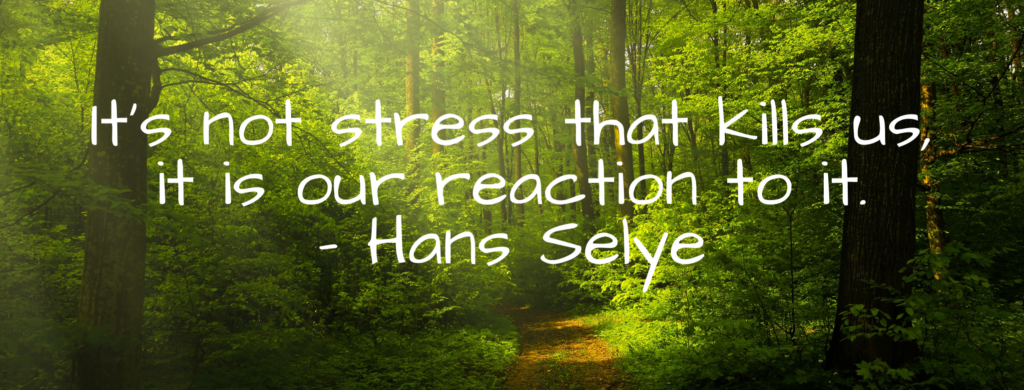
Learn How to “Relax Your Mind” and Eliminate Stress!
Is your life ruled by stress? Is your mind whirling uncontrollably? Do you have trouble sleeping at night?
If you responded yes to any of these questions, it’s time to learn how to relax your mind and reduce stress.
Both the body and the mind can be affected by stress. It’s quite simple to get started. To relieve tension and relax your mind, you can learn easy and efficient strategies.
You can learn about stress and how to cope with it. Wouldn’t it be interesting to learn more about:
1. Stress and Reaction to Stress
2. Response to Relaxation
3. Mindfulness and meditation
4. Breathing Through the Abdomen
5. Visualization
6. Concentrate Your Mind
7. Relax your Thoughts
8. Change Your Mindset
Time is a valuable commodity. Don’t let another minute go by without being stressed. Make a move.
To discover more about how to “Relax Your Mind,” go to the following link. Relax and relieve tension.


















